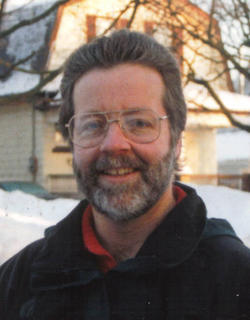City, by Clifford D Simak, although written in a very easy to read style, was not a happy book to read. But, it is most certainly deserving of the moniker classic - 5 stars and 2 thumbs up! Here's the review I posted on Amazon:
City is a masterpiece of creative genius crafted in Simak's trademark soft-spoken, pastoral style - a breath of fresh air contrasted against today's hard-boiled, fast-paced and typically cynical style of writing. A series of loosely joined short stories is presented as the myths and legends that are told by dogs around their campfires to each other and their pups in a future so distant that no dog is actually certain that the creature Man ever really truly existed. From the standpoint of the reader, City represents a Michener or Rutherfurd style multi-generational family saga - a future history, in other words. Mankind, as represented by the Webster family and their robot, Jenkins, is seen as ascending to marvelous heights of technological achievement while evolving away from a traditional city style government, travelling to the stars and beyond, but ultimately descending into an agoraphobic, dystopian Spartan existence and disappearing into extinction. Jenkins - a ten thousand year old repository of flawless electronic memory and the only remaining human artifact - knows the true story of man's rise and fall but, acting in a fashion distinctly unlike anything Asimov might have attributed to a robot, keeps it to himself. Jenkins has concluded he owes canine society an opportunity to grow and flourish on its own unaware of the fact that dogs were once nothing more than pets to a mean-spirited and violent race of humans.
Although City contemplates a lonely ending to mankind as a species, hard core tech weenie sci-fi fans will rub their hands with glee as they read of Simak's imagination and prescience at work - automatic lawnmowers, atomic powered private planes, televisor ports, laboratories and manned bases on Venus, Jupiter and Pluto, an inter-stellar expedition to Alpha Centauri, the demise of natural farming fuelled in part by the rise of mass production hydroponics, ICBMs, inter-dimensional transportation, fireplaces reduced to an anachronistic self-indulgence, suspended animation called "The Sleep" as a psychologically gentler form of suicide, and, of course, thinking, sentient robots as servants and work mates.
To draw on a cosmological metaphor, the ending for man that Simak tells of is not the violent, catastrophic big crunch type ending that would see us wiped out in a blaze of glory. He rather talks of a much bleaker, almost unbearably sad ending to humanity as it simply disappears - the infinite boredom of heat death, as it were, as all motion ends and the universe reaches a boundless uniformity with the maximization of entropy. Simak is blistering in his criticism of man's arrogant opinion of his own place in the world, a theme he will return to again and again in such novels as Time is the Simplest Thing and Time and Again:
"But man had changed. He had lost the old knowledge and old skills. His mind had become a flaccid thing. He lived from one day to the next without any shining goal. But he still kept the old vices - the vices that had become virtues from his own viewpoint and raised him by his own bootstraps. He kept the unwavering belief that his was the only kind, the only life that mattered - the smug egoism that made him the self-appointed lord of all creation."
At once inspiring, frightening, un-nerving, depressing and yet touching, City is a classic that needs to be read by all true sci-fi fans.
The review is at http://tinyurl.com/8zbxh
Votes, comments and discussion always welcome!
Sunday, September 25, 2005
Subscribe to:
Post Comments (Atom)


No comments:
Post a Comment